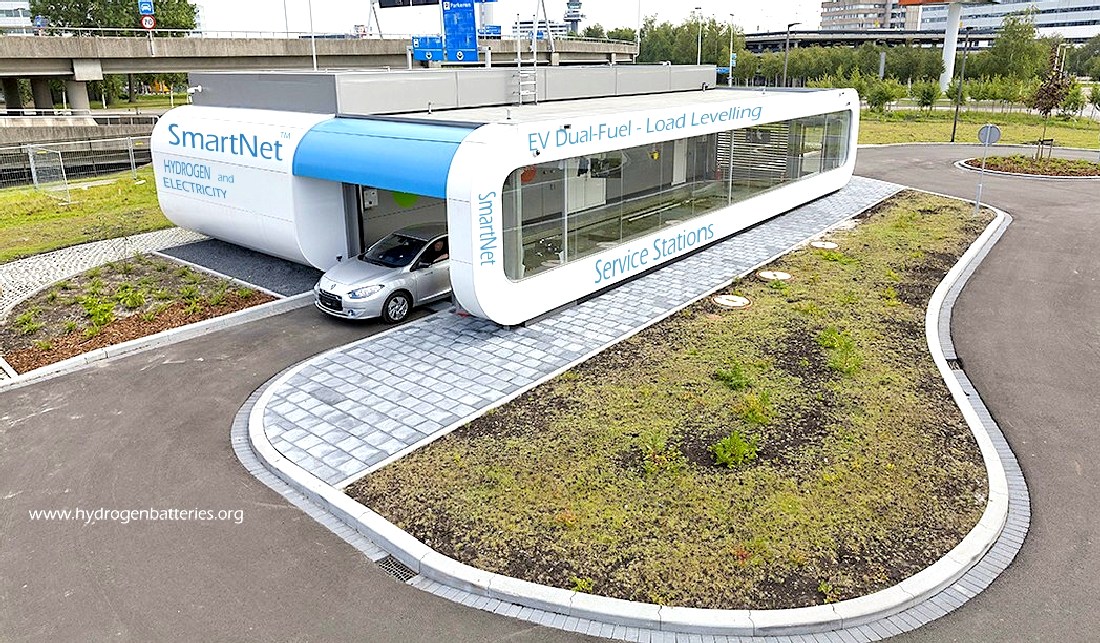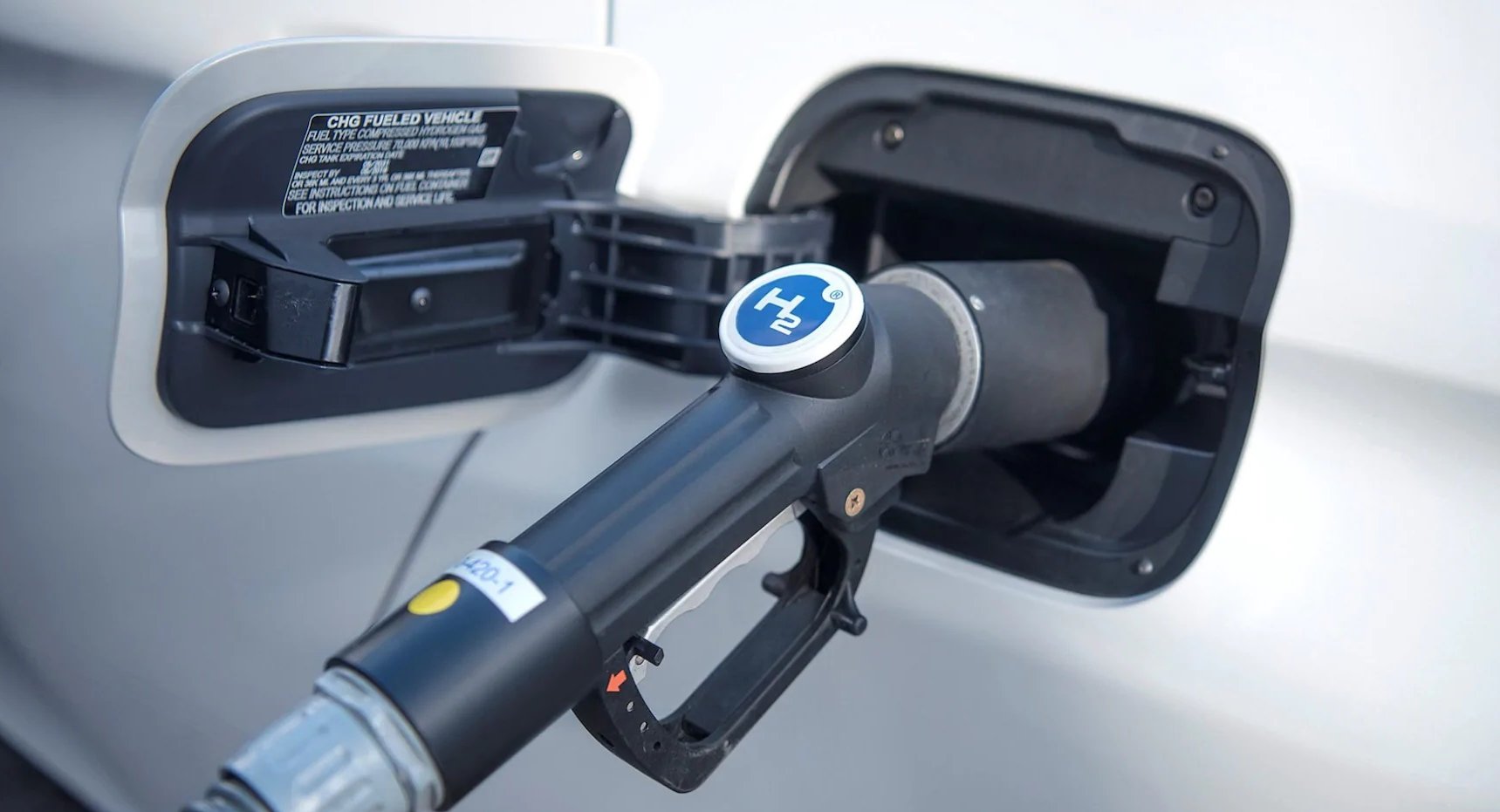|
HORIZON EUROPE
Please use our A-Z INDEX to navigate this site where page links may lead to other sites, or see HOME
|
|
|
Imagine a means to store electricity as green hydrogen for the load levelling of national grids, while also supplying energy for commercial vans and heavy duty trucks. Fuel cells provide a way to convert hydrogen gas into electricity, but on their own they do not represent a solution. The way forward for E-Mobility is with hydrogen batteries, as the beating heart of the Smartnet™ dual-fuel infrastructure.
Several
of the calls in the HE pipeline (some in draft form), or at least part of those
calls, appears to be looking for a SmartNet™
versatile solution, or could (should) be integrated with a smart mobility
infrastructure.
HORIZON-CL5-2022-D2-01-11: CIVITAS 2030 – Coordination and support for EU CIVITAS is an acronym of CIty-VITAlity-Sustainability.
The EU estimates that an EU contribution of between EUR 4.00 and 5.00 million would allow these outcomes to be addressed appropriately. Expected Outcome: Projects are expected to contribute to the following outcomes:
• Increasing the extent and speed of the take up of innovative, replicable urban mobility
ο Develop, and put in place a communication, dissemination and promotion strategy
ο Provide a common communication and dissemination framework for the projects
ο Reach out to national transport press correspondents and relevant European media,
• Providing coordination, monitoring and support activities to the living lab cities and
ο Organising capacity building, training sessions and three site visits per year, based
ο Organise a CIVITAS Forum to share results and best practice from urban mobility
ο Collaborate on the organisation of the Urban Mobility Days (flagship conference on
ο Looking at project results as well as wider developments in the field of sustainable
ο Update and increase the database of subscribers of CIVITAS newsletters by 20%
ο Offer liaison activities, collaboration and synergy building with the different urban
ο Maintaining, optimising and promoting the CIVITAS website through usability tests,
ο Increase the CIVITAS twitter followers by 20% every year.
ο Preparing two policy papers per year on innovative solutions, good practices, and
ο Prepare policy recommendations and key learnings addressed to cities, Member
ο Updating, promoting and enlarging the CIVITAS cities network, with at least 20 new
Scope: Together with initiatives of ELTIS and the European Mobility Week, CIVITAS is part
Proposals should aim at focusing activities on communication and event organisation and
Proposals should aim at putting in place a common communication and dissemination strategy
Call - Cross-sectoral solutions for the climate transition
CIVITAS is a network of cities for cities dedicated to cleaner, better transport in Europe and beyond. Since it was launched by the European Commission in 2002, the CIVITAS Initiative has tested and implemented over 800 measures and urban transport solutions as part of demonstration projects in more than 80 Living Lab cities Europe-wide.
CIVITAS is an acronym of CIty-VITAlity-Sustainability.
SOCIETAL CHALLENGES - Smart, Green And Integrated Transport
Europe must reconcile the growing mobility needs of its citizens and goods and the changing needs shaped by new demographic and societal challenges with the imperatives of economic performance and the requirements of an energy-efficient low-carbon society and climate-resilient economy. Despite its growth, the transport sector must achieve a substantial reduction in greenhouse gases and other adverse environmental impacts, and must break its dependency on oil and other fossil fuels, while maintaining high levels of efficiency and mobility and promoting territorial cohesion.
Sustainable mobility can only be achieved through a radical change in the transport system, including in public transport, inspired by breakthroughs in transport research, far-reaching innovation, and a coherent, Europe-wide implementation of greener, safer, more reliable and smarter transport solutions.
Research and innovation must bring about focused and timely advances for all transport modes that will help achieve key Union policy objectives, while boosting economic competitiveness, supporting the transition to a climate-resilient, energy-efficient and low-carbon economy, and maintaining global market leadership both for the service industry as well as the manufacturing industry.
Although the necessary investments in research, innovation and deployment will be significant, failing to improve the sustainability of the whole transport and mobility system and failing to maintain European technological leadership in transport will result in unacceptably high societal, ecological, and economic costs in the long term, and damaging consequences on European jobs and long-term economic growth.
Rationale and Union added value
The transport sector is a major contributor to greenhouse gases and generates up to a quarter of all emissions. It is also a major contributor to other air pollution problems. Transport is still 96 % dependent on fossil fuels. It is essential to reduce this environmental impact through targeted technological improvement, bearing in mind that each mode of transport faces varying challenges and is characterised by different technology integration cycles. Moreover, congestion is an increasing problem; systems are not yet sufficiently smart; alternative options for shifting towards more sustainable modes of transport are not always attractive; road fatalities remain dramatically high at 34 000 per year in the Union; citizens and businesses expect a transport system that is accessible to all, safe and secure. The urban context poses specific challenges and provides opportunities to the sustainability of transport and for a better quality of life.
Within a few decades the expected growth rates of transport would drive European traffic into a gridlock and make its economic costs and societal impact unbearable, with adverse economic and societal repercussions. If trends of the past continue in the future, passenger-kilometres are predicted to double over the next 40 years and grow twice as fast for air travel. CO2 emissions would grow 35 % by 2050. Congestion costs would increase by about 50 %, to nearly EUR 200 billion annually. The external costs of accidents would increase by about EUR 60 billion compared to 2005.
Business-as-usual is therefore not an option. Research and innovation, driven by policy objectives and focused on the key challenges, shall contribute substantially to achieve the Union's targets of limiting global temperature increase to 2 °C, cutting 60 % of CO2 emissions from transport, drastically reducing congestion and accident costs, and virtually eradicating road deaths by 2050.
Union level funding of transport research and innovation will complement Member States' activities by focusing on activities with a clear European added value. This means that emphasis will be placed on priority areas that match European policy objectives where a critical mass of effort is necessary, where Europe-wide, interoperable or multimodal integrated transport solutions can help remove bottlenecks in the transport system, or where pooling efforts transnationally and making better use of and effectively disseminating existing research evidence can reduce research investment risks, pioneer common standards and shorten time to market of research results.
Research and innovation activities shall include a wide range of initiatives, including relevant public-private partnerships, that cover the full innovation chain and follow an integrated approach to innovative transport solutions. Several activities are specifically intended to help bring results to the market: a programmatic approach to research and innovation, demonstration projects, market take-up actions and support for standardisation, regulation and innovative procurement strategies all serve this goal. In addition, using stakeholders' engagement and expertise will help bridge the gap between research results and their deployment in the transport sector.
Investing in research and innovation for a greener, smarter and fully integrated reliable transport system will make an important contribution to the objectives of the Europe 2020 strategy and of its flagship initiative 'Innovation Union'. The activities will support the implementation of the White Paper "Roadmap to a Single European Transport Area - Towards a competitive and resource efficient transport system". They will also contribute to the policy goals outlined in the flagship initiatives 'Resource-efficient Europe', 'An Industrial Policy for the Globalisation Era' and 'Digital Agenda for Europe'. They will also interface with the relevant Joint Programming Initiatives.
(a) Resource-efficient transport that respects the environment
(b) Better mobility, less congestion, more safety and security
(c) Global leadership for the European transport industry
The aim is to reinforce the competitiveness and performance of European transport manufacturing industries and related services (including logistic processes, maintenance, repair, retrofitting and recycling) while retaining areas of European leadership (e.g. aeronautics).
(d) Socio-economic and behavioural research and forward-looking activities for policy making
The aim is to support improved policy making which is necessary to promote innovation and meet the challenges raised by transport and the societal needs related to it.
• HORIZON-CL5-2021-D2-01-08: Emerging technologies for a climate neutral Europe
• HORIZON-CL5-2021-D3-01-05: Energy Sector Integration: Integrating and combining energy systems to a cost-optimised and flexible energy system of systems
• HORIZON-CL5-2021-D5-01-01: Nextgen vehicles
• HORIZON-CL5-2021-D5-01-03: System approach to achieve optimised Smart EV Charging and V2G flexibility in mass-deployment conditions (2ZERO)
• HORIZON-CL5-2021-D6-01-06: Framework for better coordination of large-scale demonstration pilots in Europe and EU-wide knowledge base (CCAM Partnership)
• HORIZON-CL5-2021-D6-01-08: New delivery methods and business/operating models to green the last mile and optimise road transport
• HORIZON-CL5-2022-D2-01-05: Next generation technologies for High-performance and safe-by-design battery systems for transport and mobile applications (Batteries Partnership)
• HORIZON-CL5-2022-D2-01-08: Coordination of large-scale initiative on future battery
• HORIZON-CL5-2022-D2-01-11: CIVITAS 2030 – Coordination and support for EU
If anyone wants to form a consortium for an application (as lead perhaps) we'd be more than pleased to contribute the IP and flatpack and Universal Cartridge designs, on confirmation of funding grant. If commercial EV OEM car, van or truck makers joined, that would make a very solid consortium, though not essential, as the proposed Smartnet™ system is dual fuel, as well as load levelling - an international hydrogen and electricity supply network.
LINKS & REFERENCE
https://civitas.eu/about
Please use our A-Z INDEX to navigate this site
Copyright © Climate Change Trust & Universal Smart Batteries 2021. Solar Studios, BN271RF, United Kingdom.
|


